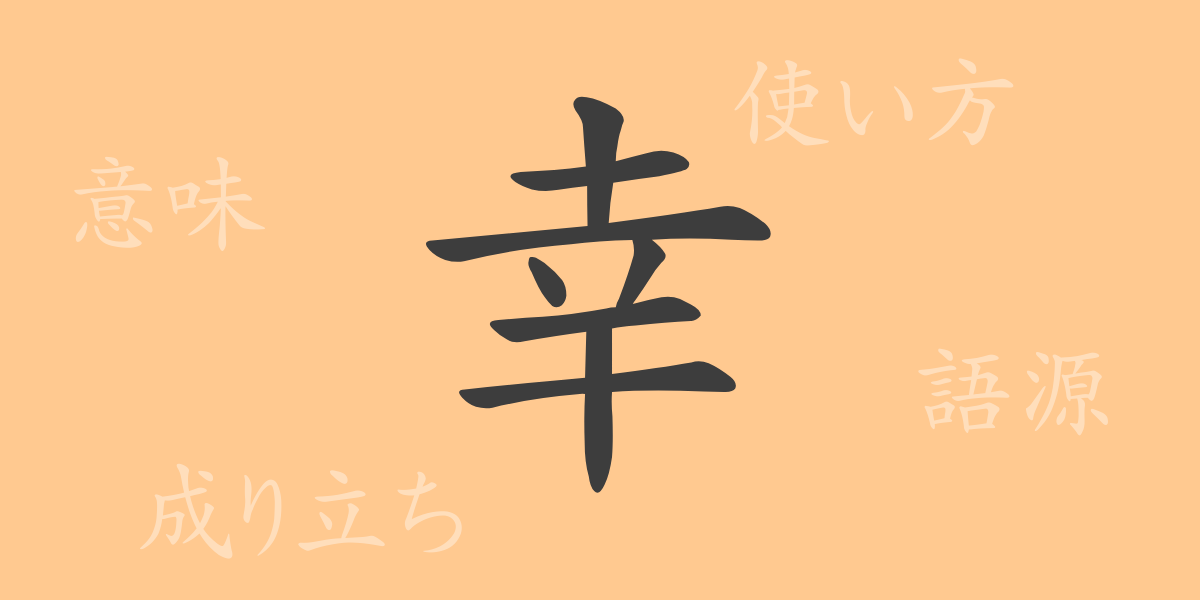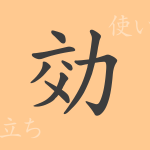In Japanese culture, the meanings embedded in individual kanji characters often resonate deeply with the emotions and values of the Japanese people. Among these, the character “幸(こう)” holds a special place for many. It represents the wish for happiness, the dream of good fortune, and the pursuit of a fulfilling life. This article explores the allure and background of the character “幸(こう),” shedding light on its significance.
Origins of 幸(こう)
The kanji “幸(こう)” evolved from ancient Chinese pictographs. Originally, it depicted a hand-held tool, which then evolved to signify “going” or “moving forward.” Over time, the meaning further shifted to encompass “good fortune” and “happiness,” symbolizing positive outcomes and the fulfillment of wishes.
Meanings and Usage of 幸(こう)
The kanji “幸(こう)” denotes good fortune and happiness, signifying favorable fate or a state of well-being. It is also used in expressions like “幸(さいわ)い,” which indicates a grateful or fortunate situation, and “幸(しあわ)せ,” referring to a state of happiness. The inclusion of this character in text adds a hopeful and positive nuance.
Readings, Stroke Count, and Radical of 幸(こう)
The kanji “幸(こう)” has interesting characteristics in its readings and structure.
- Readings: The on-yomi (Chinese reading) is “コウ(こう),” and the kun-yomi (Japanese readings) are “さいわ.い(さいわい),” “さち(さち),” and “しあわ.せ(しあわせ).”
- Stroke Count: “幸(こう)” is composed of 8 strokes.
- Radical: The radical is “干(かん),” which means “to dry” and is read as “ほす(ほす).”
Idioms, Phrases, and Proverbs Using 幸(こう)
Numerous idioms, phrases, and proverbs in Japanese include “幸(こう),” each reflecting the sentiments of the Japanese people.
For example, “幸運(こううん)” means good fortune or a lucky occurrence, while “幸福(こうふく)” refers to a state of contentment and well-being. Conversely, “不幸(ふこう)” indicates misfortune or sadness. “幸せ者(しあわせもの)” describes a person in a happy state, often used to express envy at someone’s good fortune.
Conclusion on 幸(こう)
The meanings embodied in a single kanji character reflect the culture and values of its country of origin. The character “幸(こう)” symbolizes the concepts of happiness and good fortune, which are cherished by the Japanese people. Each time we encounter the character “幸(こう)” in daily life, we are reminded of its profound significance. Through this article, we hope you have gained an appreciation for the charm and background of “幸(こう).”

























